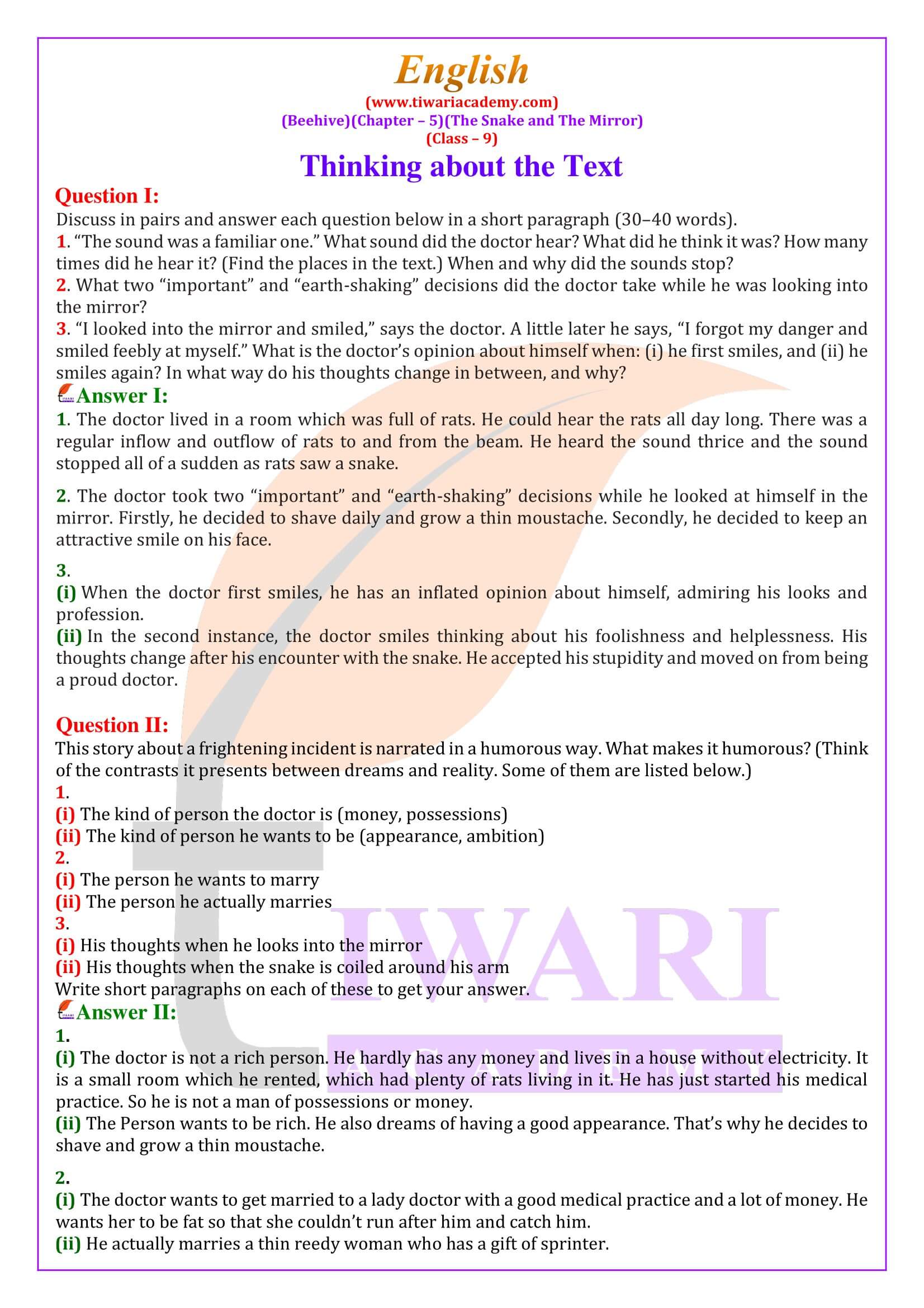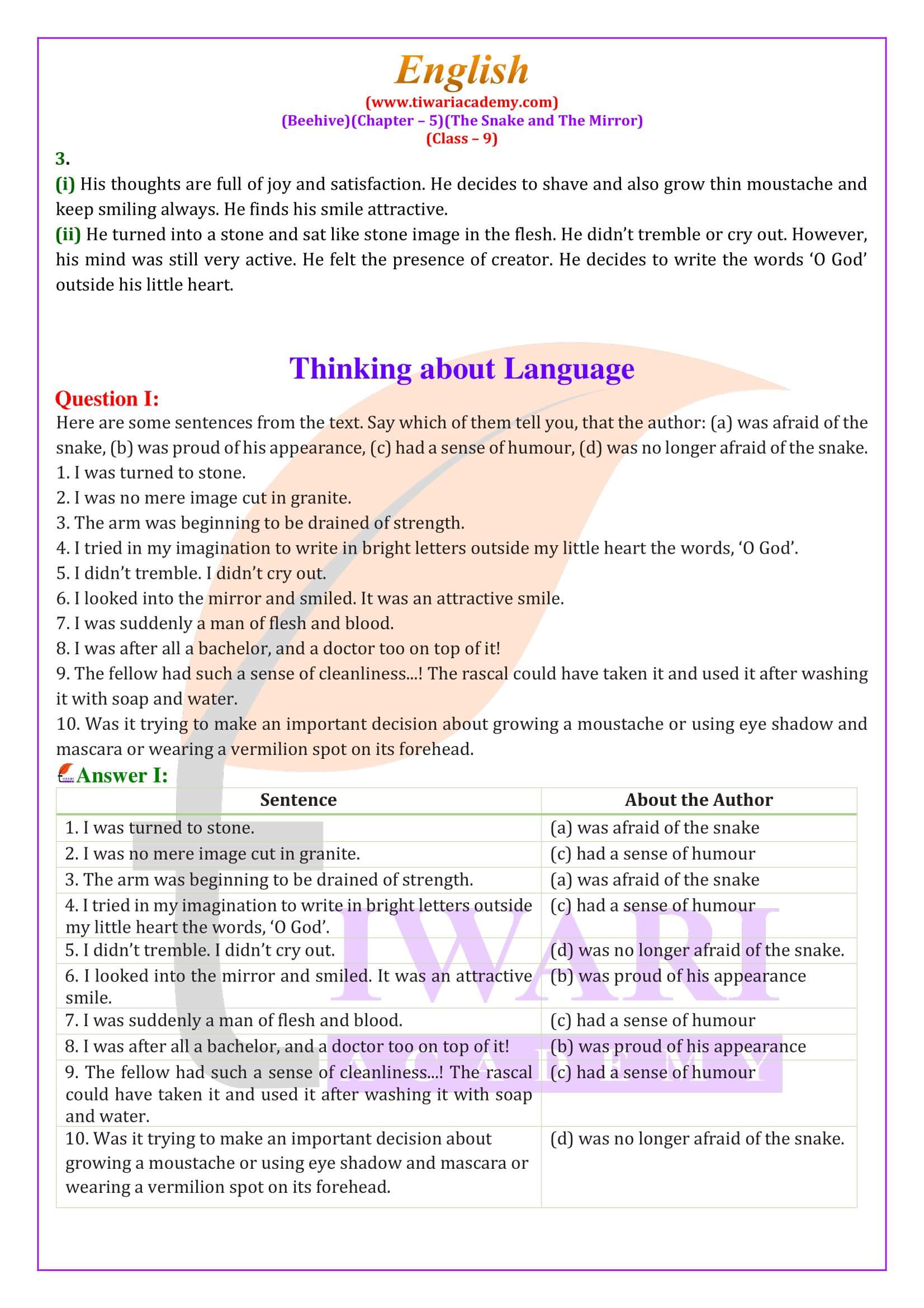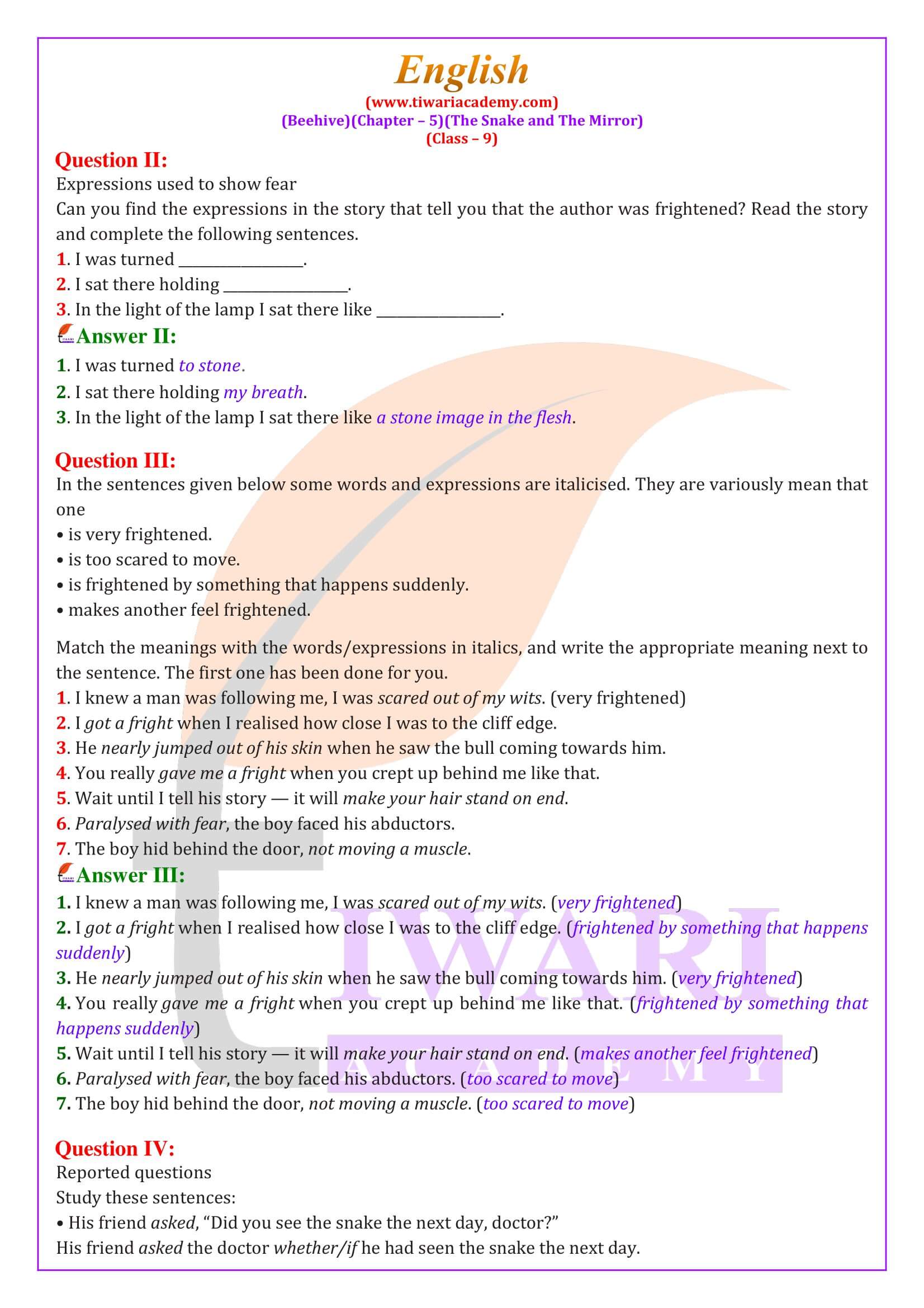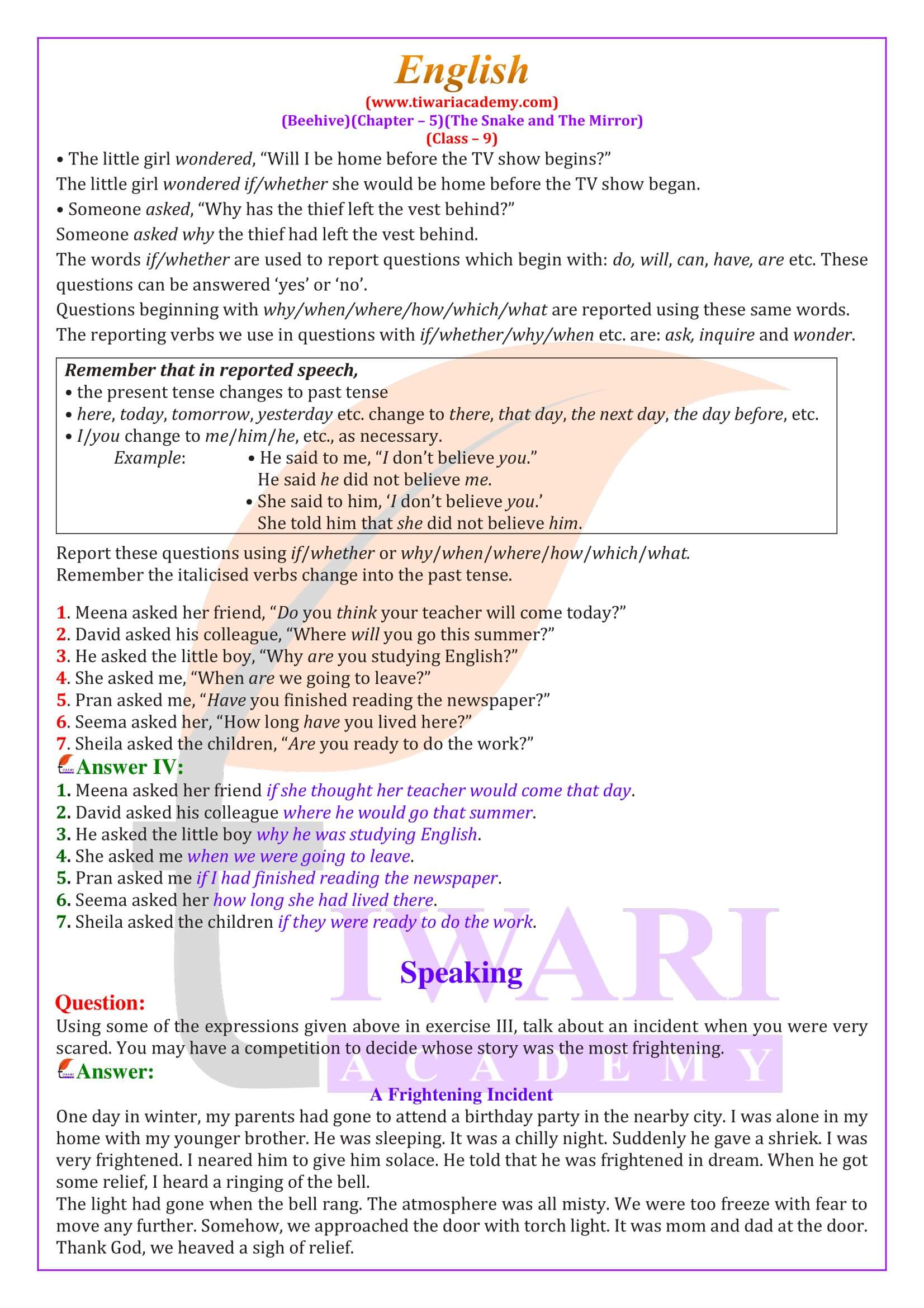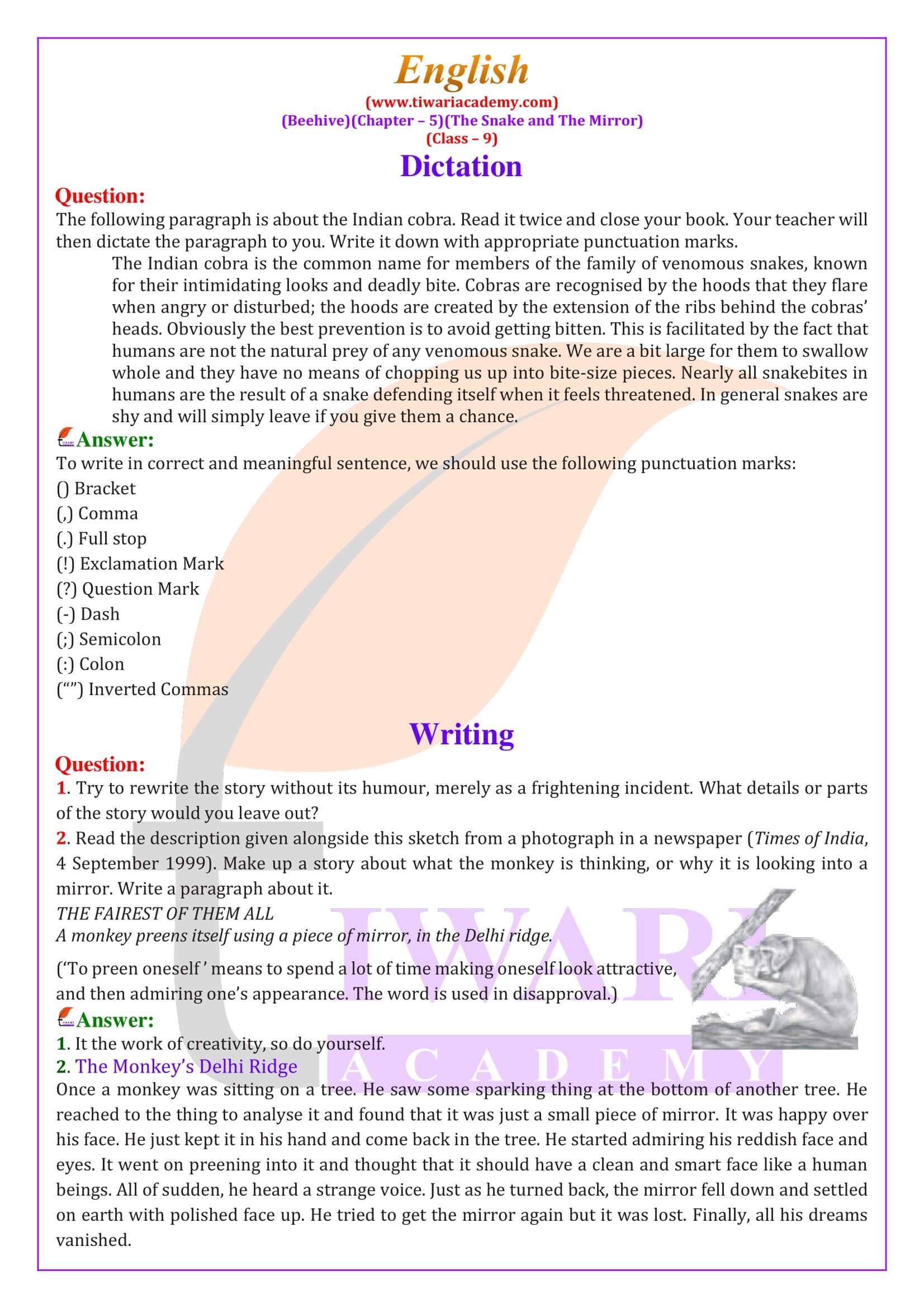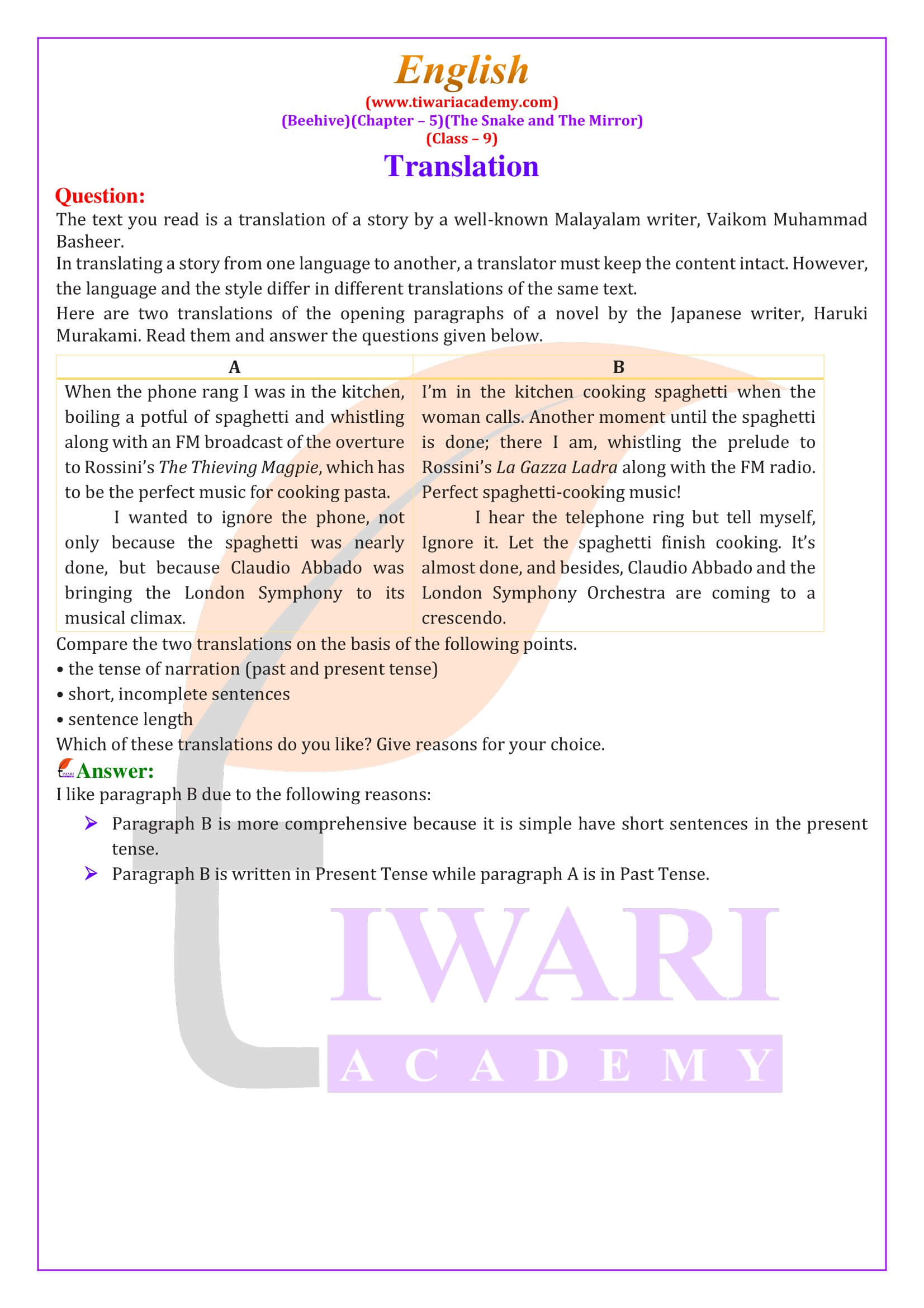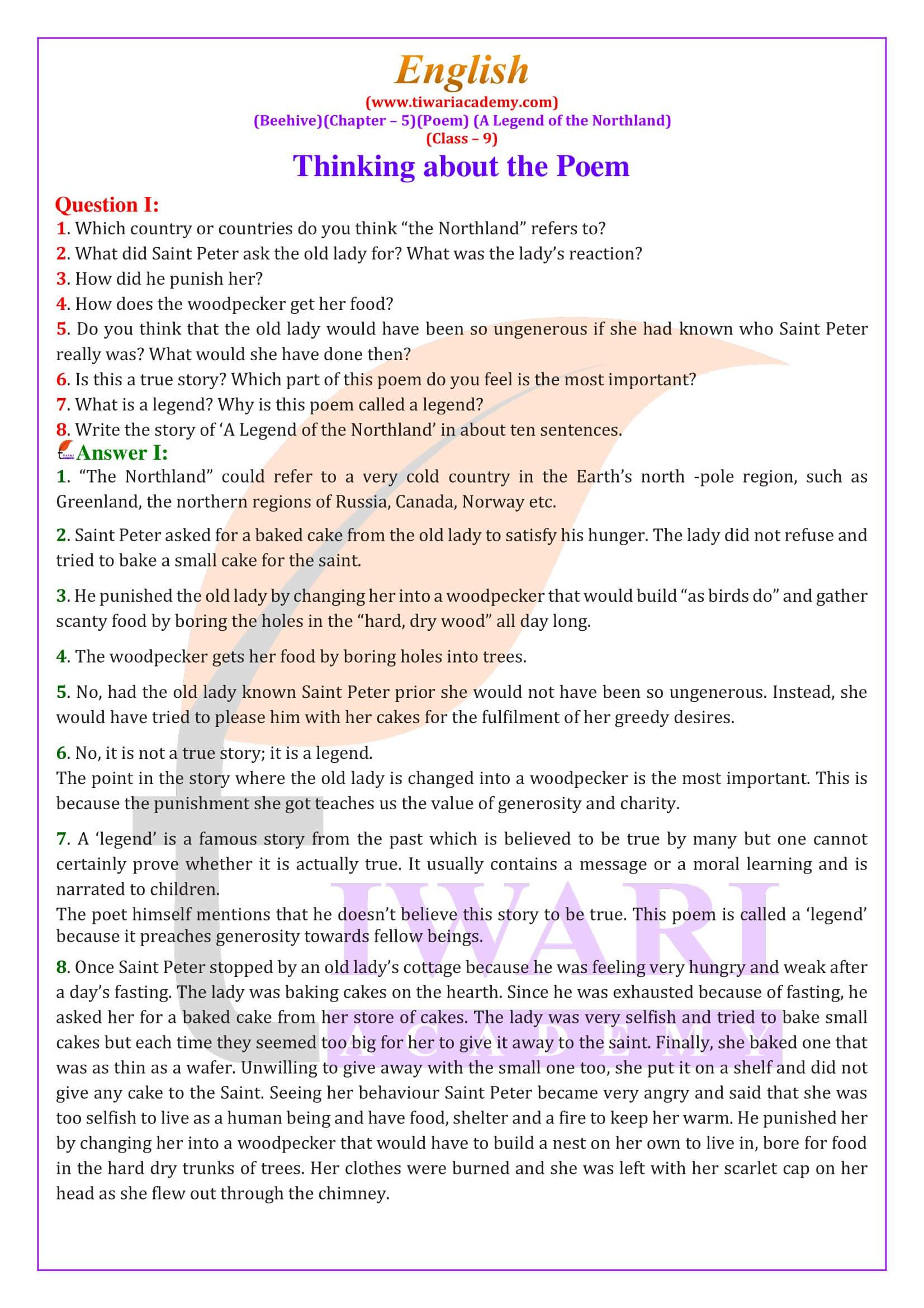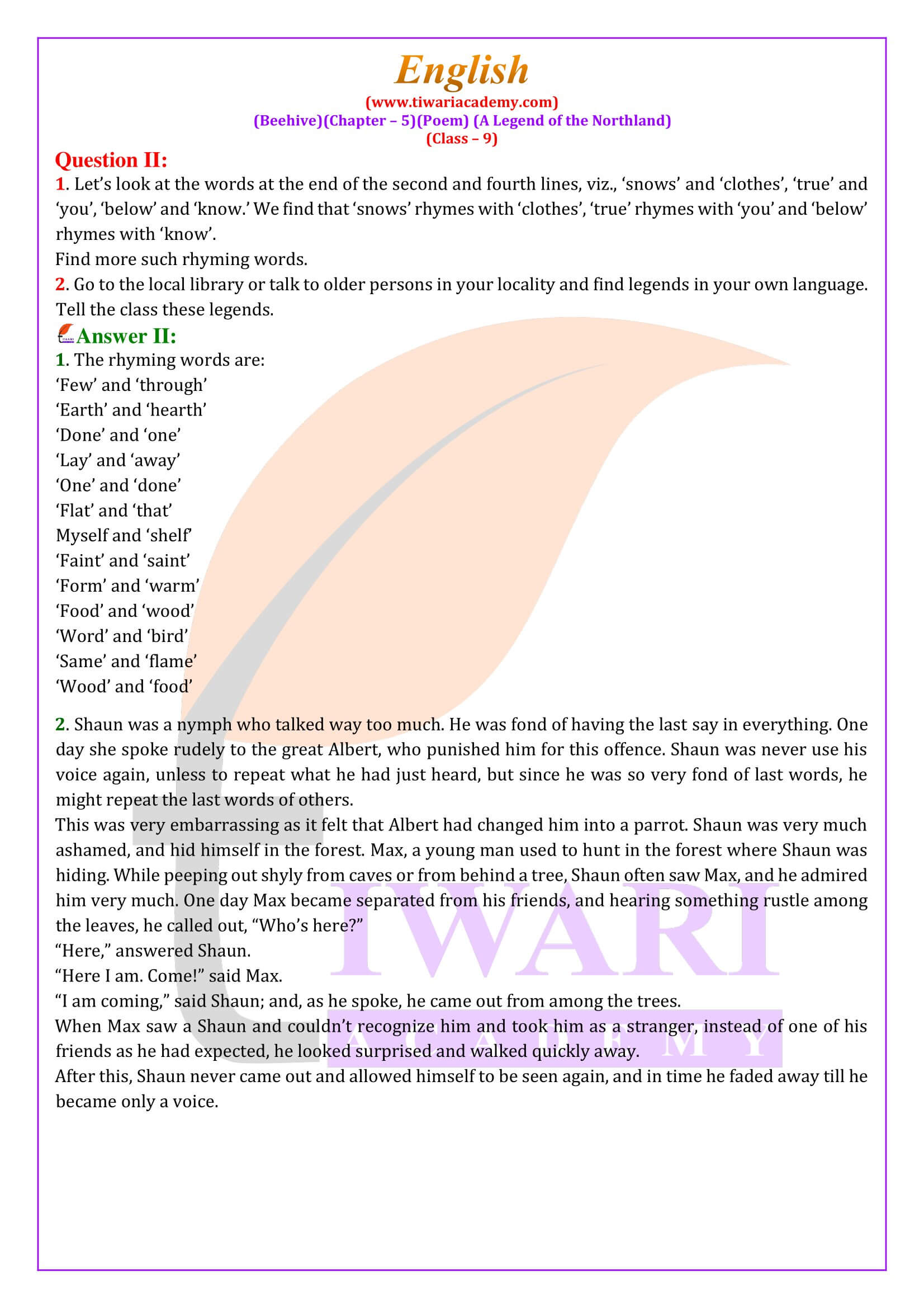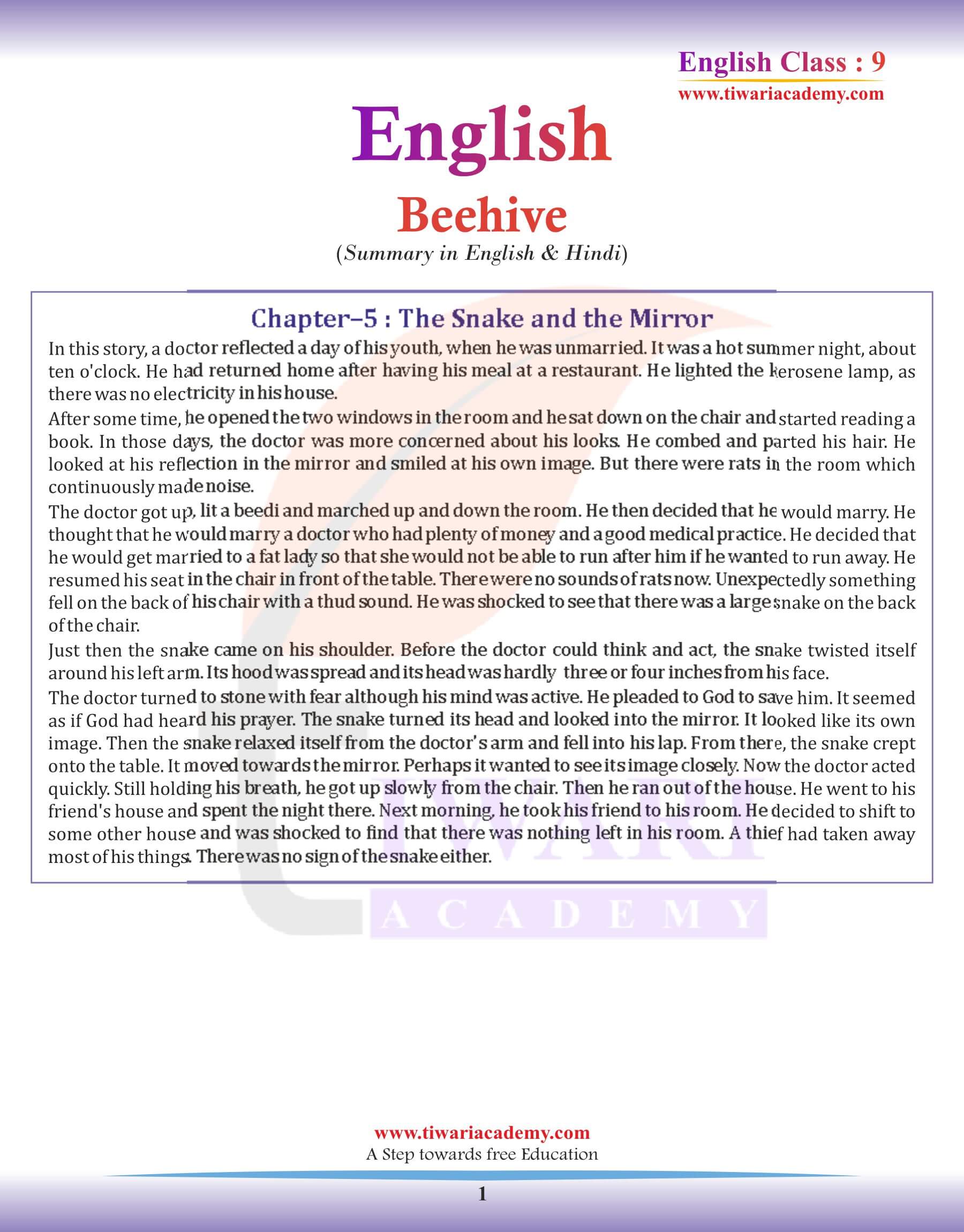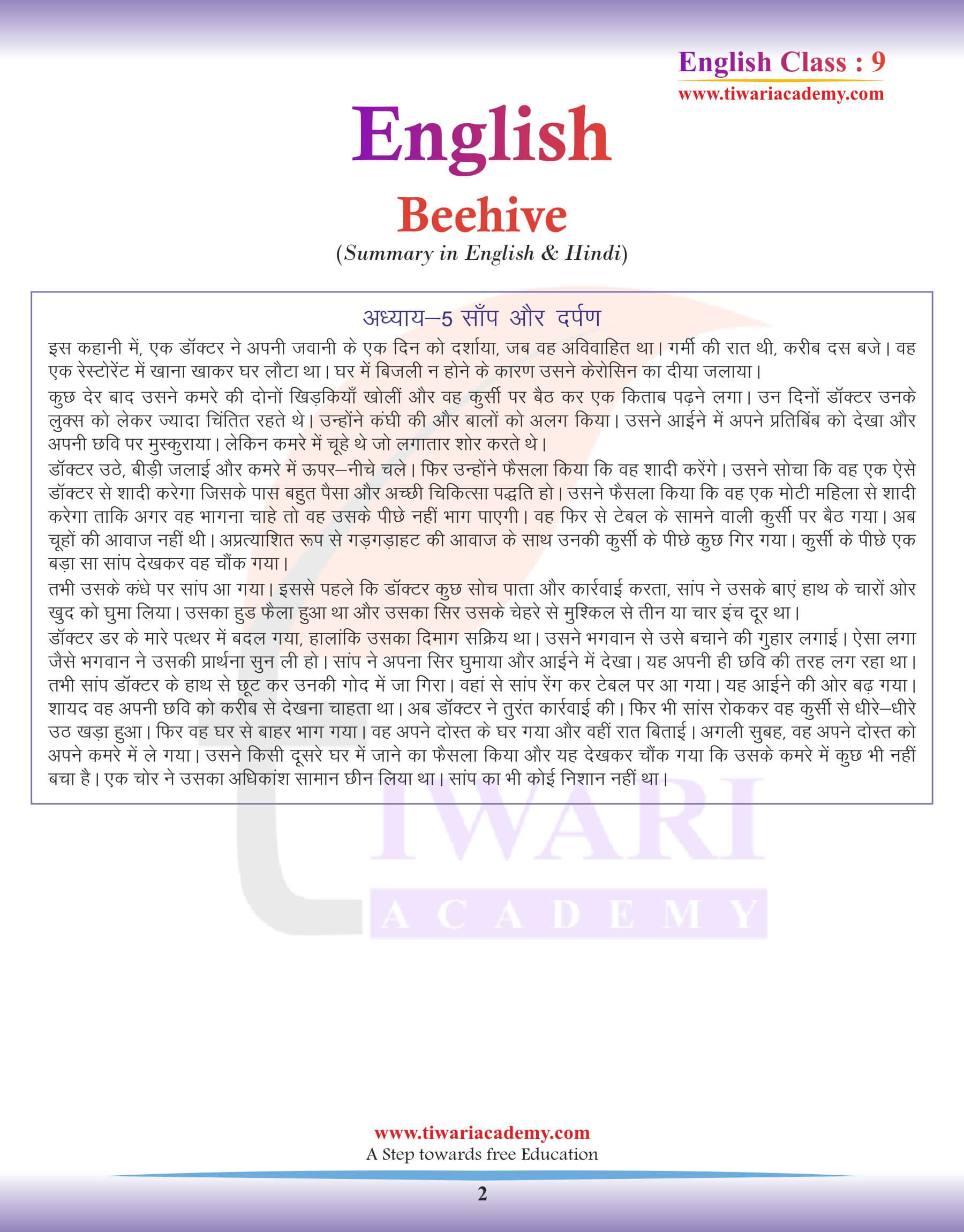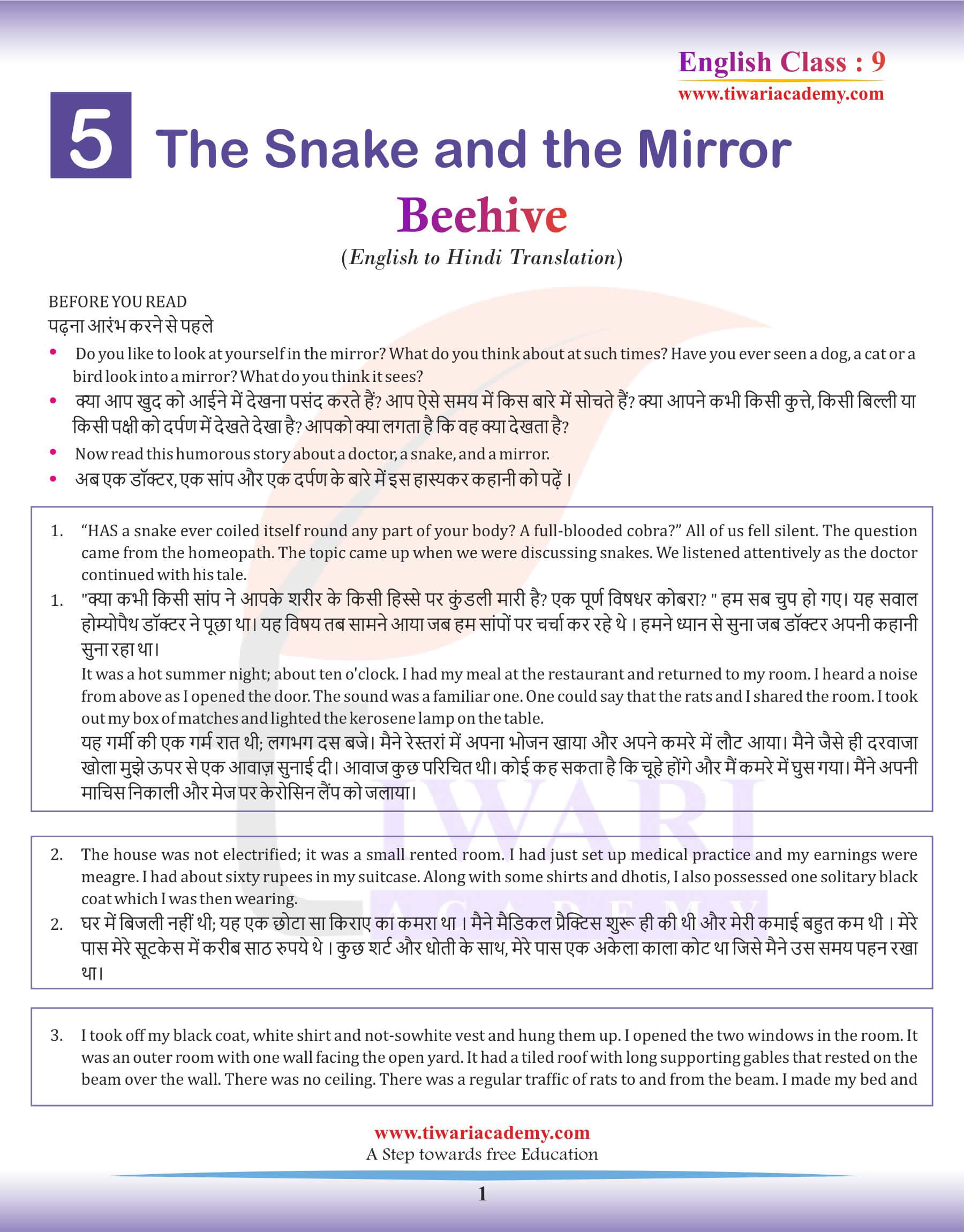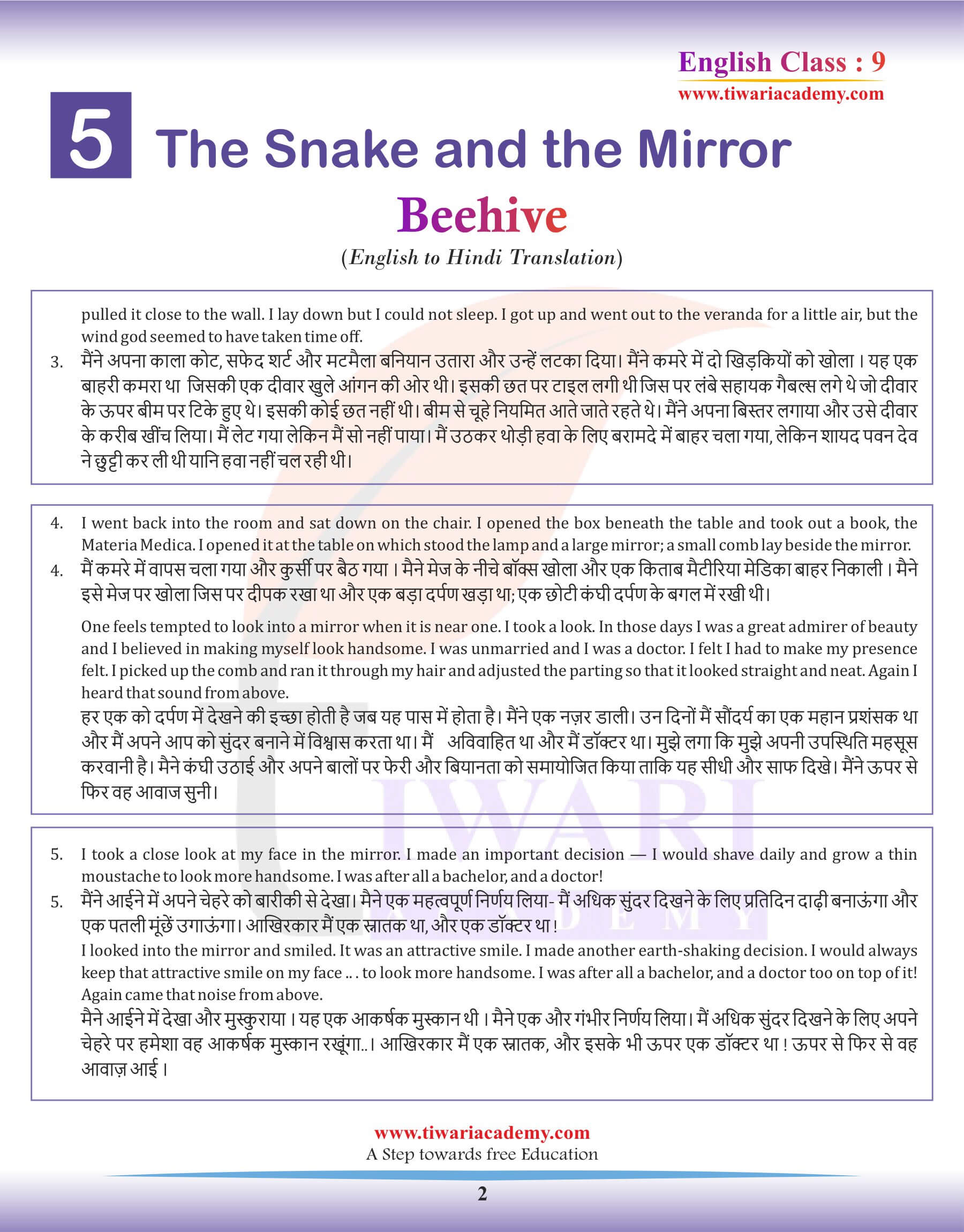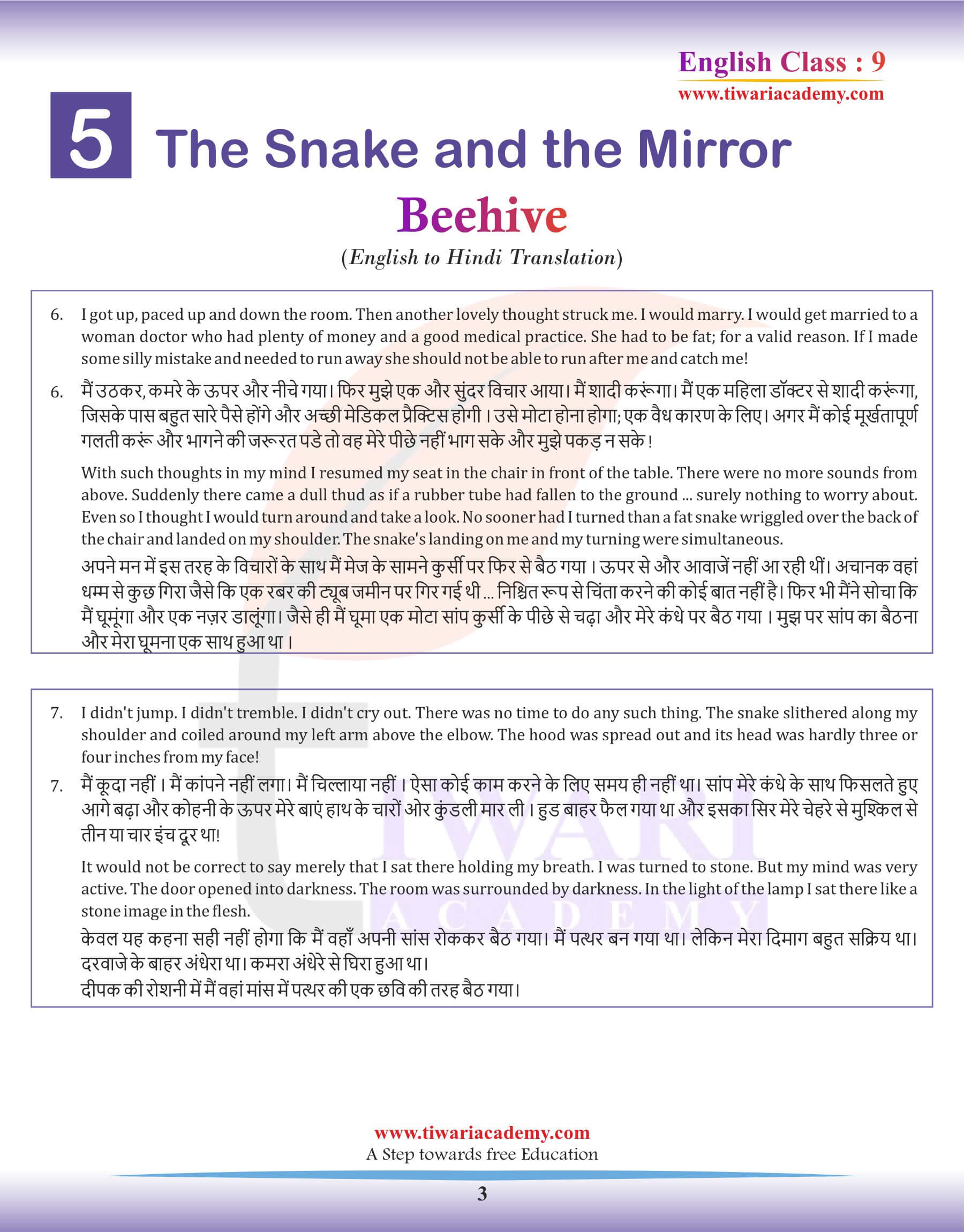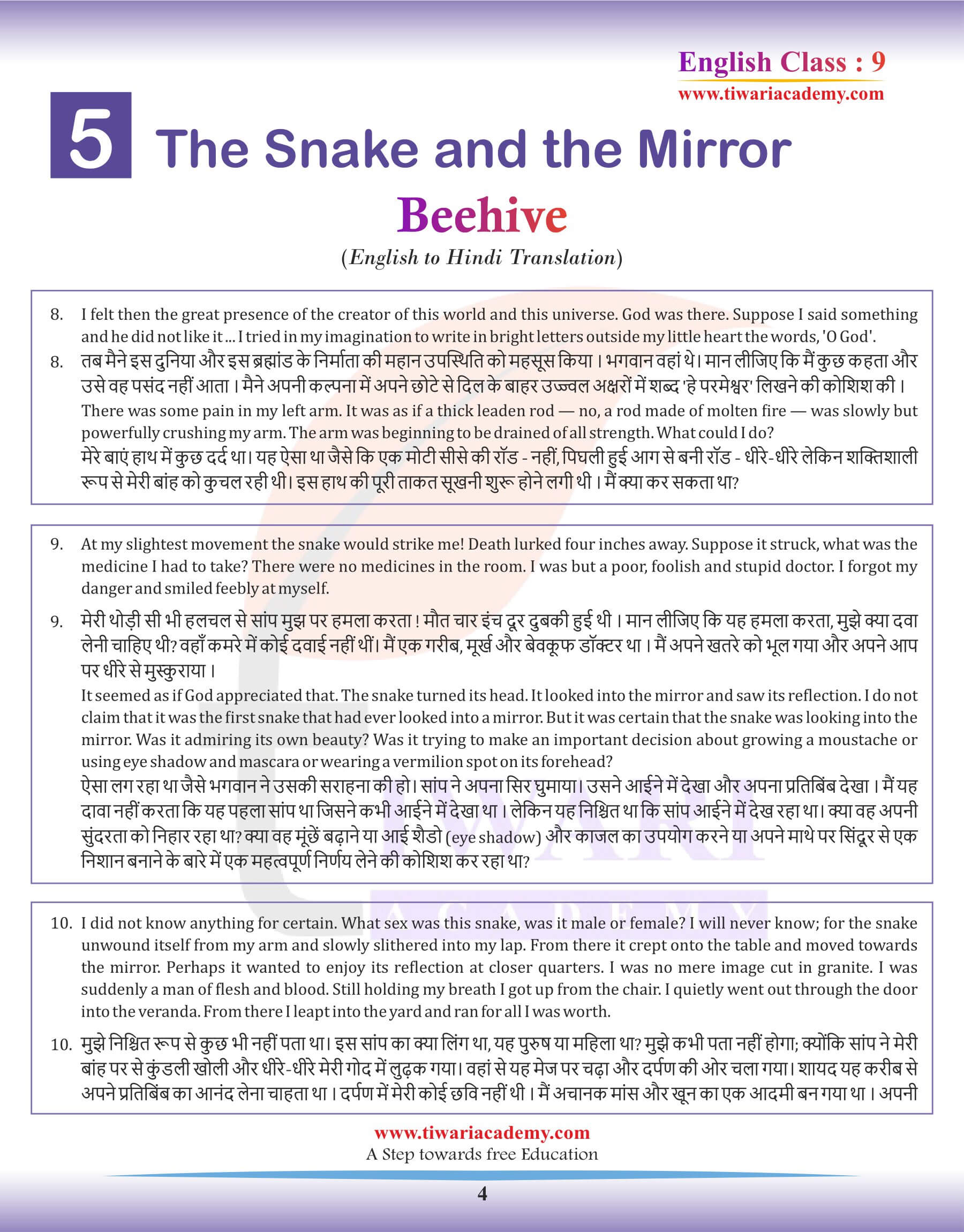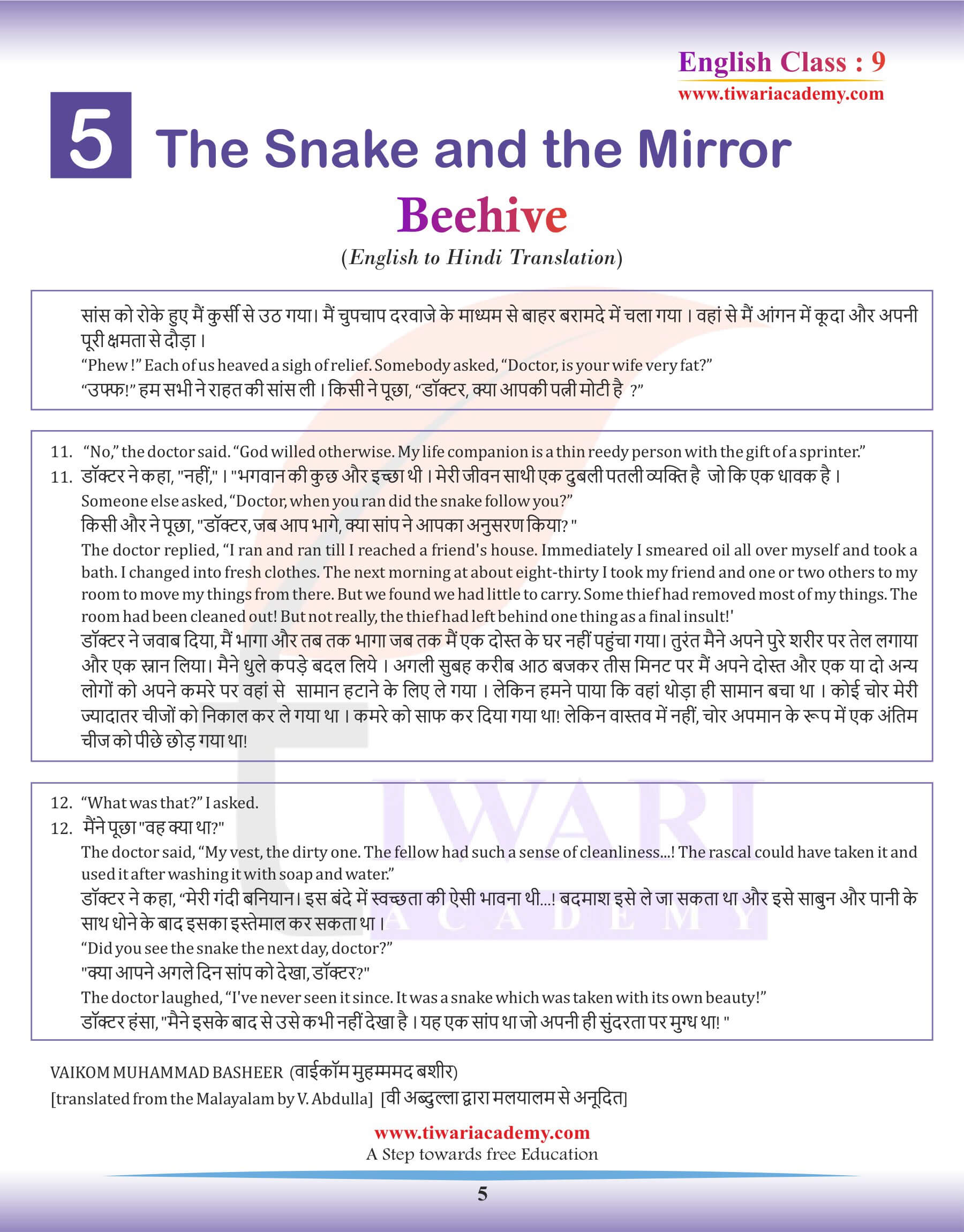NCERT Solutions for Class 9 English Beehive Chapter 5 The Snake and the Mirror and the poem The Legend of the Northland in Hindi Medium (Hindi Translation) Summary in Hindi and English. The solutions are modified as per the rationalised NCERT books issued for academic session 2024-25.
NCERT Solutions for Class 9 English Beehive Chapter 5
Class 9 English Chapter 5 Question Answers
- Class 9 English Beehive Chapter 5 The Snake and the Mirror
- Class 9 English Beehive Chapter 5 Poem The Legend of the Northland
- Class 9 English Beehive Chapter 5 Summary
- Class 9 English Beehive Chapter 5 Hindi Translation
- Class 9 English Beehive Chapter 5 NCERT Book
- Class 9 English NCERT Solutions
- Class 9 all Subjects NCERT Solutions
| Class: 9 | English |
| Textbook: | English Reader – Beehive |
| Chapter 5: | The Snake and the Mirror |
| Session: | CBSE 2024-25 |
| Content: | NCERT Solutions, Translation, Summary |
9th English Beehive Chapter 5 Question – Answers
Question – Answers of Class 9 English Beehive Chapter 5 The Snake and the Mirror & the poem The Legend of the Northland are given here for new academic session 2024-25. All the solutions are updated for new academic session 2024-25.
Passages for Comprehension
I. READ THE PASSAGE GIVEN BELOW AND ANSWER THE QUESTIONS THAT FOLLOW:
I took off my black coat, white shirt and not-so white vest and hung them up. I opened the two windows in the room. It was an outer room with one wall facing the open yard. It had a tiled roof with long supporting gables that rested on the beam over the wall. There was no ceiling. There was a regular traffic of rats to and from the beam. I made my bed and pulled it close to the wall. I lay down but I could not sleep.
Questions:
1. What routine activity was going on the room?
2. After entering the room, what was done by the speaker?
3. What did the speaker do after opening the window?
II. READ THE PASSAGE GIVEN BELOW AND ANSWER THE QUESTIONS THAT FOLLOW:
With such thoughts in my mind I resumed my seat in the chair in front of the table. There were no more sounds from above. Suddenly there came a dull thud as if a rubber tube had fallen to the ground … surely nothing to worry about. Even so I thought I would turn around and take a look. No sooner had I turned than a fat snake wriggled over the back of the chair and landed on my shoulder.
Questions:
1. What made a dull low sound in the room?
2. Find a word that means ‘twisted body about’.
3. What were the thoughts revolving in the mind of the speaker?
III. READ THE PASSAGE GIVEN BELOW AND ANSWER THE QUESTIONS THAT FOLLOW:
I did not know anything for certain. What sex was this snake, was it male or female? I will never know; for the snake unwound itself from my arm and slowly slithered into my lap. From there it crept onto the table and moved towards the mirror. Perhaps it wanted to enjoy its reflection at closer quarters.
Questions:
1. When did the doctor feel some relief?
2. What did the doctor not know about the snake?
3. Write the adverb of ‘close’.
Suggested Answers of Passages
Answers for Passage I:
1. There was a regular traffic of rats on the beam.
2. He took off his coat and white shirt. He hung them up.
3. The speaker made his bed and pulled it close to the wall for rest.
Answers for Passage II:
1. It was the snake who fell with a thud like a rubber tube on the ground.
2. Twisted body about means wriggled.
3. The speaker was thinking to marry a rich lady doctor who was fat enough.
Class 9 English Beehive Chapter 5 – Important Questions
“The sound was a familiar one.” What sound did the doctor hear? What did he think it was? How many times did he hear it? (Find the places in the text.) When and why did the sounds stop?
The doctor lived in a room which was full of rats. He could hear the rats all day long. There was a regular inflow and outflow of rats to and from the beam. He heard the sound thrice and the sound stopped all of a sudden as rats saw a snake.
What two “important” and “earth-shaking” decisions did the doctor take while he was looking into the mirror?
The doctor took two “important” and “earth-shaking” decisions while he looked at himself in the mirror. Firstly, he decided to shave daily and grow a thin moustache. Secondly, he decided to keep an attractive smile on his face.
“I looked into the mirror and smiled,” says the doctor. A little later he says, “I forgot my danger and smiled feebly at myself.” What is the doctor’s opinion about himself when: (i) he first smiles, and (ii) he smiles again? In what way do his thoughts change in between, and why?
(i) When the doctor first smiles, he has an inflated opinion about himself, admiring his looks and profession. (ii) In the second instance, the doctor smiles thinking about his foolishness and helplessness. His thoughts change after his encounter with the snake. He accepted his stupidity and moved on from being a proud doctor.
Using some of the expressions given above in exercise III, talk about an incident when you were very scared. You may have a competition to decide whose story was the most frightening.
A Frightening Incident: One day in winter, my parents had gone to attend a birthday party in the nearby city. I was alone in my home with my younger brother. He was sleeping. It was a chilly night. Suddenly he gave a shriek. I was very frightened. I neared him to give him solace. He told that he was frightened in dream. When he got some relief, I heard a ringing of the bell. The light had gone when the bell rang. The atmosphere was all misty. We were too freeze with fear to move any further. Somehow, we approached the door with torch light. It was mom and dad at the door. Thank God, we heaved a sigh of relief.
Which country or countries do you think “the Northland” refers to?
“The Northland” could refer to a very cold country in the Earth’s north -pole region, such as Greenland, the northern regions of Russia, Canada, Norway etc.
What did Saint Peter ask the old lady for? What was the lady’s reaction?
Saint Peter asked for a baked cake from the old lady to satisfy his hunger. The lady did not refuse and tried to bake a small cake for the saint.
How does the woodpecker get her food?
The woodpecker gets her food by boring holes into trees.
Do you think that the old lady would have been so ungenerous if she had known who Saint Peter really was? What would she have done then?
No, had the old lady known Saint Peter prior she would not have been so ungenerous. Instead, she would have tried to please him with her cakes for the fulfilment of her greedy desires.
Is this a true story? Which part of this poem do you feel is the most important?
No, it is not a true story; it is a legend. The point in the story where the old lady is changed into a woodpecker is the most important. This is because the punishment she got teaches us the value of generosity and charity.
What is a legend? Why is this poem called a legend?
A ‘legend’ is a famous story from the past which is believed to be true by many but one cannot certainly prove whether it is actually true. It usually contains a message or a moral learning and is narrated to children. The poet himself mentions that he doesn’t believe this story to be true. This poem is called a ‘legend’ because it preaches generosity towards fellow beings.
Write the story of ‘A Legend of the Northland’ in about ten sentences.
Once Saint Peter stopped by an old lady’s cottage because he was feeling very hungry and weak after a day’s fasting. The lady was baking cakes on the hearth. Since he was exhausted because of fasting, he asked her for a baked cake from her store of cakes. The lady was very selfish and tried to bake small cakes but each time they seemed too big for her to give it away to the saint. Finally, she baked one that was as thin as a wafer. Unwilling to give away with the small one too, she put it on a shelf and did not give any cake to the Saint. Seeing her behaviour Saint Peter became very angry and said that she was too selfish to live as a human being and have food, shelter and a fire to keep her warm. He punished her by changing her into a woodpecker that would have to build a nest on her own to live in, bore for food in the hard dry trunks of trees. Her clothes were burned and she was left with her scarlet cap on her head as she flew out through the chimney.
Answers for Passage III:
1. The doctor felt some relief when it unwound from his arm and stepped away.
2. The doctor did not know if it was either male or a female snake.
3. Adverb of close is closely.
The story of Unit 5 from class 9th Beehive, how do you find the doctor’s character?
I found doctor’s character was hilarious and with sense of fear. The way he described the story of himself was really humorous.
Do you found the story of chapter 5 from class 9th Beehive interesting? Why?
I think the story was interesting and Hilarious. At a point I was curious to know what happened next and character shared information about the story beautifully.
In chapter 5 from class 9th Beehive, how do you find doctor’s reaction when snake crept on his shoulder and held him?
I think the reaction was fear because doctor could clearly see his death inches away from his face and when he clearly surrendered all the hope of escaping the situation snake left him for mirror and he felt great relief.
After reading the poem, unit 5 from class 9th Beehive, what is the message of the poem?
I found the poem is about the lady who made the Saint angry for which the saint felt insulted and turned the lady into a bird.
In chapter 5 from class 9th beehive, what is your thought about the language of the poem?
I think the language of the poem is fairly simple so anyone can understand the poet made the poem about the story of the lady who’s turned into the woodpecker bird and since then she is a bird now.
After reading unit 5 from class 9th Beehive, do you found that this poem is too long?
I think the poem is long because the poem is about the story of a woman and Saint Peter. How she insulted the saint and she got the punishment for not being kind in human form.
